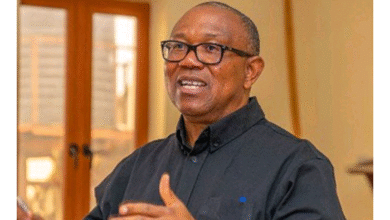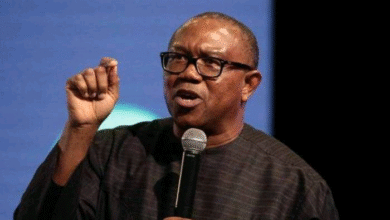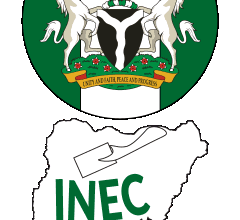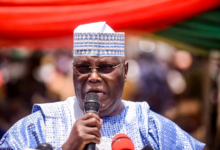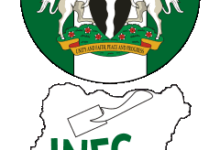Rivers Emergency Rule: ‘You Cannot Determine Two-thirds Majority by Voice Vote’, Obi Condemns Senate’s Approval

The 2023 presidential candidate of the Labour Party (LP), Mr. Peter Obi has condemned the Senate’s approval of the state of emergency in Rivers, stating that it cannot be determined by a “voice vote”.
However, the National Assembly (NASS) gave the approval on Thursday upon deliberating on the proclamation by President Tinubu.
While the Senate President, Godswill Akpabio read a letter from the President at plenary, Senate Majority Leader, Mr. Opeyemi Bamidele moved a motion for a closed session which was seconded by the Minority Leader, Mr. Abba Moro.
Consequently, Senator Akpabio reportedly called for a voice vote, and the lawmakers approved the request.
“We hope that the President’s declaration will foster peace and resolve the ongoing impasse in Rivers State,” he said, stressing that the Senate gave its approval through its powers as cited in Section 305(2) of the Constitution.
Reacting to the development in a post on X (formerly Twitter), Obi expressed displeasure saying, “While still agonizing over the ongoing deterioration of democracy in our nation, especially with the situation in Rivers State, and trying to reach out to our National Assembly members not to support and sustain the unconstitutionality and arbitrariness, I just heard that they have added salt to injury by using a voice vote to pass the illegality.
“The Constitution is clear that this cannot be done through a voice vote but by calling individuals to answer ‘yes’ or ‘no.’ You cannot determine a two-thirds majority by a voice vote. While a two-thirds majority is crucial, it does not justify bypassing proper procedures and undermining the principles of transparency and accountability.”
According to him, the use of a voice vote in such a significant decision not only disregards constitutional requirements, but also erodes public trust in the democratic process as well as the transparency and integrity of the NASS.
He noted that decisions of such magnitude must be made with integrity, following the letter and spirit of the law.
“It is disheartening that a decision as crucial as approving an emergency proclamation — one that could alter the course of the nation — has been handled with such casual disregard for constitutional standards,” Obi lamented.
The politician cited the 1999 Constitution of Nigeria (as amended), pointing out that it clearly requires that such a proclamation must be approved by at least two-thirds of all members of each House — the Senate and the House of Representatives.
“A simple call of “Aye” or “Nay” cannot accurately measure this crucial threshold. When a supermajority is required, it demands a recorded vote — whether by division, roll call, or electronic means. This isn’t just a technicality; it’s a matter of law and legitimacy.
“The Senate Standing Orders and House Rules were established to ensure that decisions of this magnitude are made transparently, with accountability. Ignoring these procedures is not just an oversight; it is a betrayal of the democratic process. A voice vote for such a critical matter is not just insufficient; it’s a dangerous precedent,” he explained.
“If we can bend the rules so easily, what stops us from undermining other pillars of democracy?,” the former Anambra State Governor asked, stating that “Today, it’s a voice vote on a state of emergency — tomorrow, it could be a voice vote on citizens’ fundamental rights.”
Obi continued: “It is painful to think that members of the National Assembly, who swore to uphold the Constitution, could participate in a process that sidesteps the very essence of due process. We must ask ourselves: If the law no longer anchors our decisions, then what does?”
He mentioned that it is beyond a flawed procedure, as it is also a warning signal, adding that “we cannot afford to keep gambling with the soul of our democracy.”


